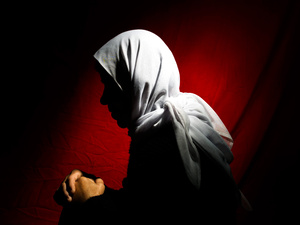UNHCR issues guidelines on protection of male rape victims
UNHCR issues guidelines on protection of male rape victims

There are no detailed statistics, but sexual violence against men and boys is increasingly being recognized as a protection concern in conflict and forced displacement situations.
GENEVA, Switzerland, October 8 (UNHCR) - The UN refugee agency has for the first time issued guidelines for UNHCR staff and other aid workers on how to identify and support male victims of rape and other sexual violence in conflict and displacement situations.
The new publication, compiled by UNHCR's Division of International Protection, was launched at a recent debate in Geneva on the rarely broached subject. The participants included academics, aid workers, women's rights activists, lawyers and diplomats.
The guidelines will be essential for people and organizations that help refugees and internally displaced people. They include tips on the challenging task of identifying victims of sexual and gender-based violence (SGBV), given the stigma attached to rape.
"SGBV against men and boys has generally been mentioned as a footnote in reports," noted Sandesh Sivakumaran, a law professor at Britain's Nottingham University. "Rape is not limited to traditional notions, it is not limited to gender . . . we must recognize rape as torture, rape as rape."
There are no detailed statistics on the number of male victims of SGBV but, the phenomenon is increasingly being recognized as a protection concern in conflict and forced displacement situations. Despite the prevailing taboo, Sivakumaran told the panel discussion in Geneva that there had been progress over the last decade in reporting of incidents.
"Dealing with sexual violence is not a zero sum game whereby, if you address the needs of women and girls, you cannot address the needs of men and boys, and vice-versa," said Chris Dolan, director of the Uganda-based Refugee Law Project.
Louise Aubin, a deputy director in the UNHCR Division of International Protection, said the refugee agency compiled the guidelines because "we need to learn to improve how we interact with survivors and we need to remove the hurdles to reporting in order to ensure that all survivors have access to support, irrespective of gender."
Aubin recognized that there were gaps in responses, including in research, advocacy, programming and access to justice, within both the UN and national legal frameworks. However, she said male survivors could be better helped if they were systematically included in SGBV response programmes.
Access the guidelines: Working with men and boy survivors of sexual and Gender-based violence in forced displacement









